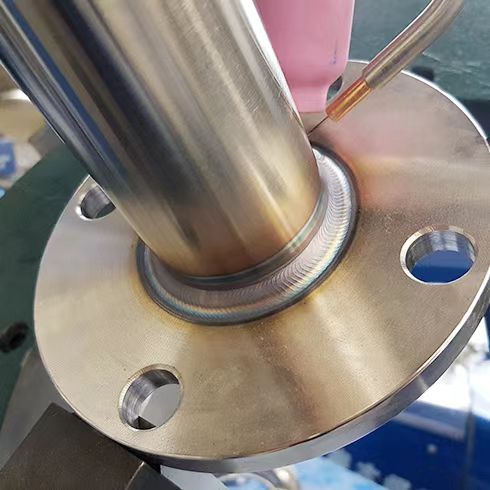The process pipelines in petrochemical refineries are as intricate as the blood vessels in the human body, and most of the media are poisonous and harmful. Ensuring the quality of pipeline construction has become the focus of engineering quality control. When it comes to the quality of pipeline construction, the first thing that may come to mind is the quality of pipeline welding. However, in petrochemical installations, in addition to welded connections, a large number of flange connections are used for pressure pipelines. The number of flange bolts is huge and the working conditions are complicated. Nearly In recent years, the leakage accidents caused by the flange interface are also increasing. About 18% of all leakage accidents are caused by the leakage of the flange interface. Therefore, it is necessary to control the quality of flange installation and strengthen flange management. Particularly important. The leakage accidents caused by the flange interface of petrochemical equipment are also increasing, causing great harm to the operation of the equipment. This paper analyzes the causes of flange leakage, introduces the concept of flange management, and puts forward specific process control measures and Reasonable bolt fastening load calculation method improves flange installation quality and reduces the incidence of flange leakage. Which petrochemical flange processing manufacturer is better? HEBEI CANGRUN PIPELINE EQUIPMENT CO., LTD. Integrity and excellence, professional pressure pipe fittings equipment manufacturing experience, quality assurance through pressure pipe fittings special equipment manufacturing license certification, our aim is to provide customers with excellent pipe fittings solutions.
1. The main reasons for flange leakage: There are many reasons for flange leakage, and the main reasons for flange leakage during the construction stage are as follows:
1) Damage to sealing surfaces such as flanges and gaskets;
2) Materials such as gaskets or bolts are used incorrectly, which cannot meet the operating conditions of the pipeline;
3) Flange deflection causes leakage;
4) The gasket is damaged due to irregular fastening;
5) Due to insufficient fastening load, the gasket cannot achieve sealing performance;
6) Due to the excessive fastening load, the gasket is festered.
2. Control measures to prevent flange leakage: In summary, the causes of flange leakage can be seen from the above. To ensure that the flange does not leak, it is necessary to ensure the installation quality of flanges and gaskets through strict flange process control procedures and Choosing an appropriate fastening load enables the gasket to achieve good sealing performance.
3. Pipeline pressure testing is an important means of testing the sealing performance of flanges. During the pressure testing process, it is necessary to focus on checking the sealing performance of each pair of flanges to ensure that the flanges have no leakage; the flange sealing performance inspection during the pressure testing process must be done The following points:
1) If leakage is found in the flange, it is strictly forbidden to fasten it under pressure, check the leakage point, mark it, and deal with it after the pressure is released;
2) After the pressure is released, check the parallelism of the flange and the tightening torque of the bolts. If the parallelism does not match, loosen the bolts on the opposite side of the open end, re-adjust the parallelism of the flange, and re-tighten according to the bolt tightening steps ; If only the bolt torque does not meet the requirements, it can be tightened directly according to the target torque;
3) After the flange is adjusted, carry out the pressure test again. If there is no leakage in the test again, mark the flange bolts again; if there is still leakage, the flange must be opened after pressure relief to check the sealing surface of the flange If the sealing surface of the flange is damaged, replace it or repair it online. After the defect is eliminated, perform the pressure test and inspection again, and mark the flange bolts until the verification is qualified.
According to the above theory and data analysis, it can be seen that pipeline flange management is a systematic project, and relevant factors related to flange sealing effect will be considered comprehensively, including flange pairing, sealing surface condition, sealing gasket quality, correct use of bolts and Torque value control, changes in process operating conditions, etc. Only through strict process control, strengthening material management and strict control of fastening load can the possible leakage risk of flanges be effectively avoided.
HEBEI CANGRUN PIPELINE EQUIPMENT CO., LTD. mainly produces various flanges, please feel free to contact us if you have any needs
Author Maria
Post time: Jul-28-2023

